Sales Excellence: Best Practices For Success
Casey O'Connor
In today’s extremely competitive sales world, average performance and non-aggressive goal-setting are not nearly enough to succeed. Sales teams need to strive for excellence if they expect to be successful.
Sales excellence refers to sales performance that consistently exceeds targets and goals. It is born from both culture and practice and requires strategic and cross-departmental efforts in training, tools, and mindset.
In this article, we’ll go over everything you need to know about how to create sales excellence within your organization.
Here’s what we’ll cover:
- What Is Sales Excellence?
- Why Is Sales Excellence Important?
- How to Achieve Sales Excellence
- How to Measure Sales Excellence
- Sales Best Practices to Follow
What Is Sales Excellence?
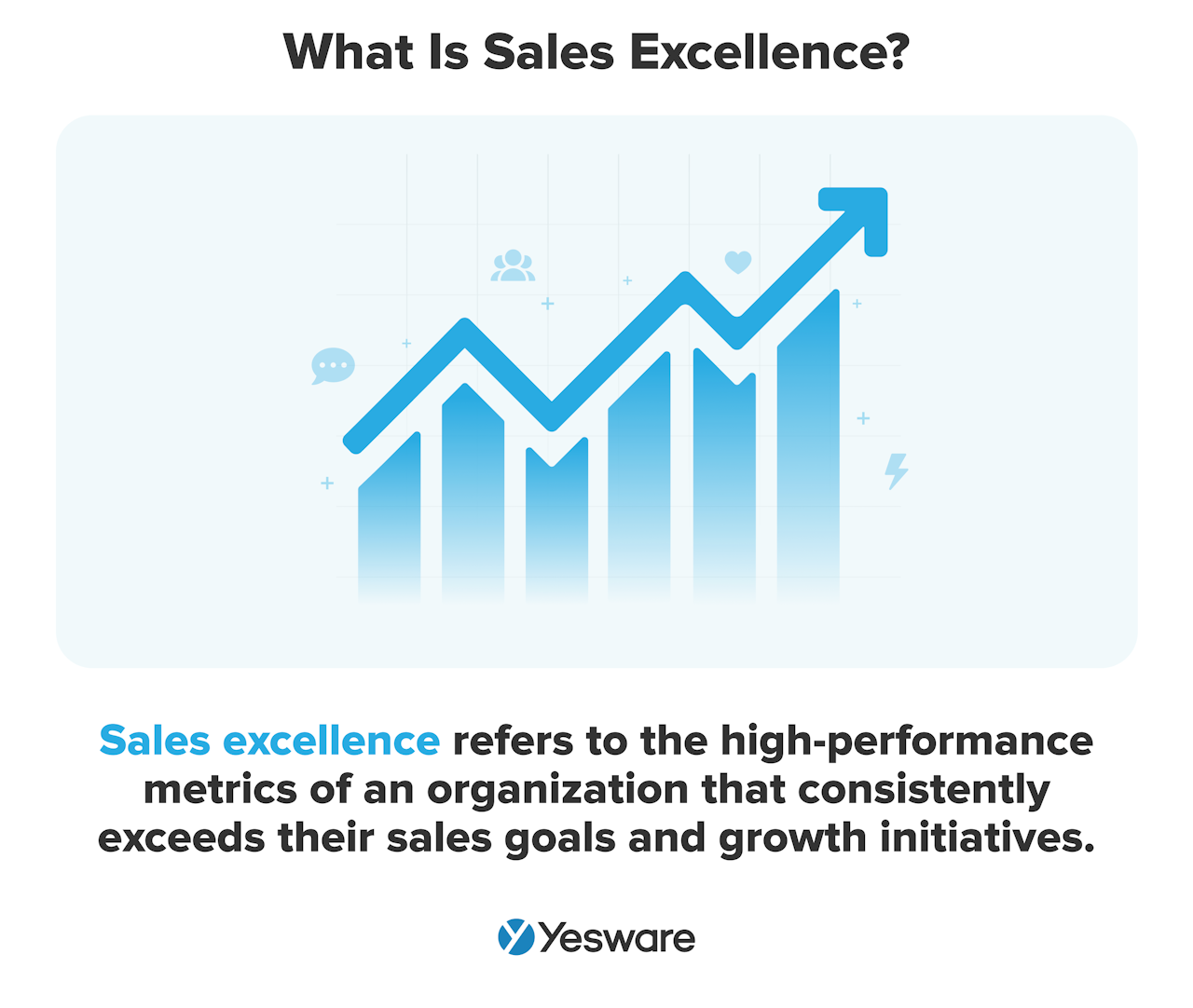 The definition of sales excellence is hard to pin down, as measures of excellence inherently vary from team to team and business to business.
The definition of sales excellence is hard to pin down, as measures of excellence inherently vary from team to team and business to business.
For example, an aggressive revenue goal for a small or medium business may represent only a fraction of the same benchmark for an enterprise company.
Regardless of the different specifics, though, sales excellence is a metric that can be measured, tracked, and improved upon over time.
Sales excellence refers to the high-performance metrics of an organization that consistently exceeds their sales goals and growth initiatives.
In other words, it measures how successfully and consistently a sales team closes deals and how well each individual sales rep contributes to that effort.
Much of sales excellence is created by specific strategy and execution. Sales teams need to have targeted, high-reaching initiatives and goals that are supported by tools, training/coaching, and culture in order to achieve excellence.
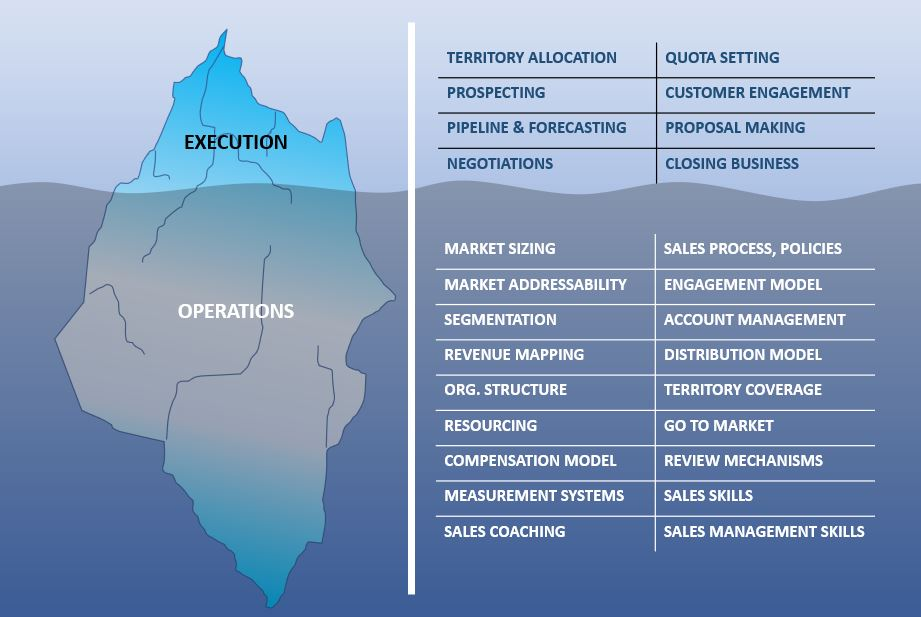
That being said, sales excellence isn’t entirely tactical. It’s as much culture and mindset as it is an executable sales strategy.
A focus on sales excellence means providing your sales reps with whatever training, tools, content, and coaching they need to be consistently motivated to improve their performance.
Why Is Sales Excellence Important?
Sales excellence is a measurable metric. Sales teams can collect and analyze data to determine at what level of excellence their team performs.
That being said, sales excellence is not a “base level” metric. In other words, there are a few factors “behind” the measure of sales excellence that help break down the full picture.
A team’s level of sales excellence is determined by and sheds light on their:
- Sales effectiveness (how well their current sales process converts leads)
- Sales efficiency (how quickly their current sales process converts leads)
- Sales productivity (takes into account both quality and speed of executing sales strategies)
The data that goes into these various metrics all boil down to one key objective: how well your sales team understands the needs of the target customer, and how well they add value to conversations with leads.
A focus on sales excellence brings up the performance of the entire team.
How To Achieve Sales Excellence
Fortunately, achieving sales excellence is not a mysterious process. It won’t come without effort, but there are specific, tangible initiatives you can take to bring your entire team closer to excellence.
Sales Technology
The first and easiest thing a sales organization can do to take steps toward sales excellence is to evaluate and add to their tech stack as needed.
At the bare minimum, your team should have access to an intuitive and well-adopted CRM system. This will help them store and manage all of the customer contact details that help move deals down the pipeline.
The other technology that’s a non-negotiable for excellence is a sales enablement platform, which we’ll get to in the next section.
Other ground-level tech stack options include platforms for business intelligence, sales engagement, and sales-readiness.
Remember that improving your tech stack does not always mean adding more platforms. Too much tech can create unnecessary bottlenecks and miscommunications in the sales process, especially if your team isn’t trained properly on how to use and integrate them all.
Instead, focus on team-wide adoption of the most important platforms.
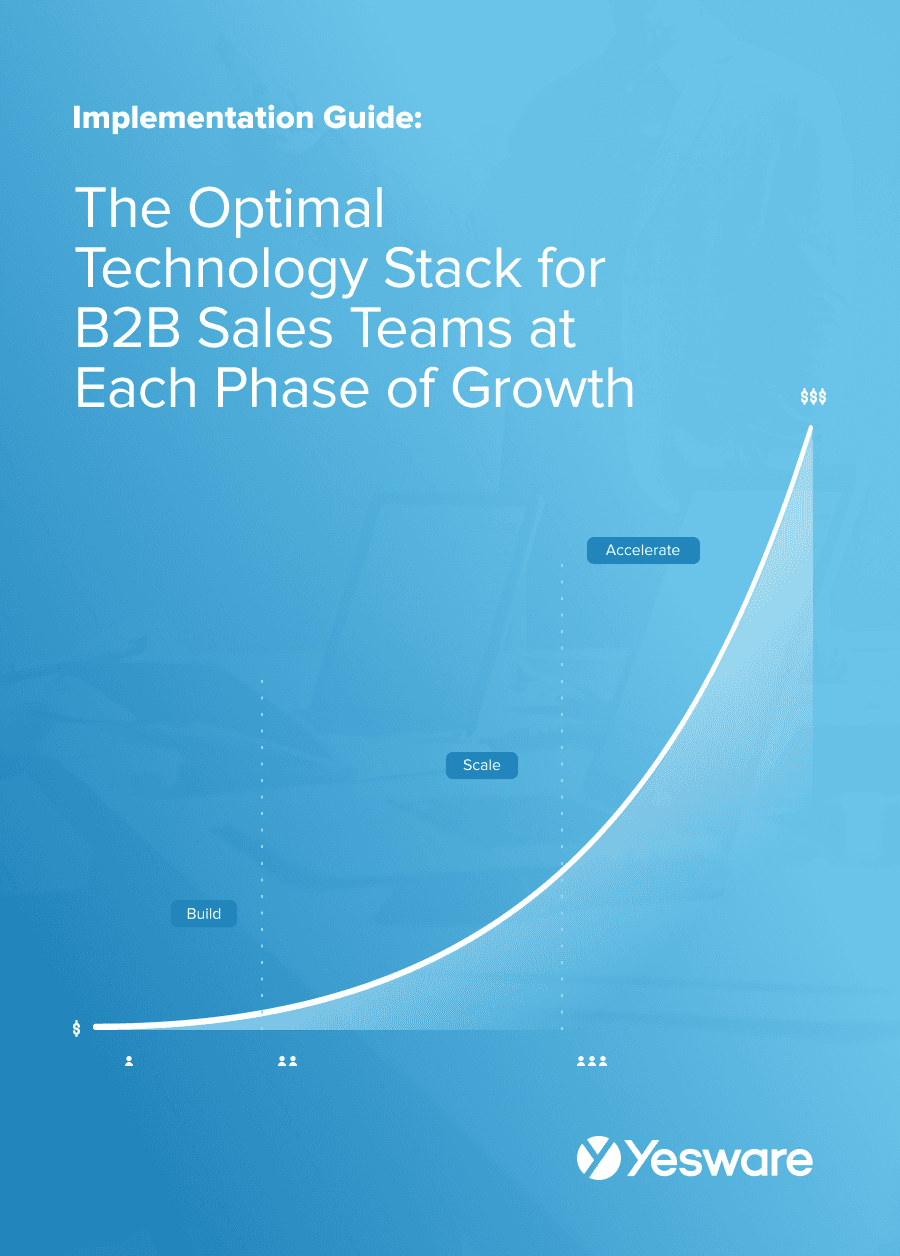 The Optimal Technology Stack for B2B Sales TeamsUsing data from the most successful business-scaling models, we designed a blueprint for the exact technology your business needs at each phase of growth.
The Optimal Technology Stack for B2B Sales TeamsUsing data from the most successful business-scaling models, we designed a blueprint for the exact technology your business needs at each phase of growth.
Sales Enablement
Sales enablement focuses on helping sales and other revenue-adjacent teams market and sell products effectively and efficiently. 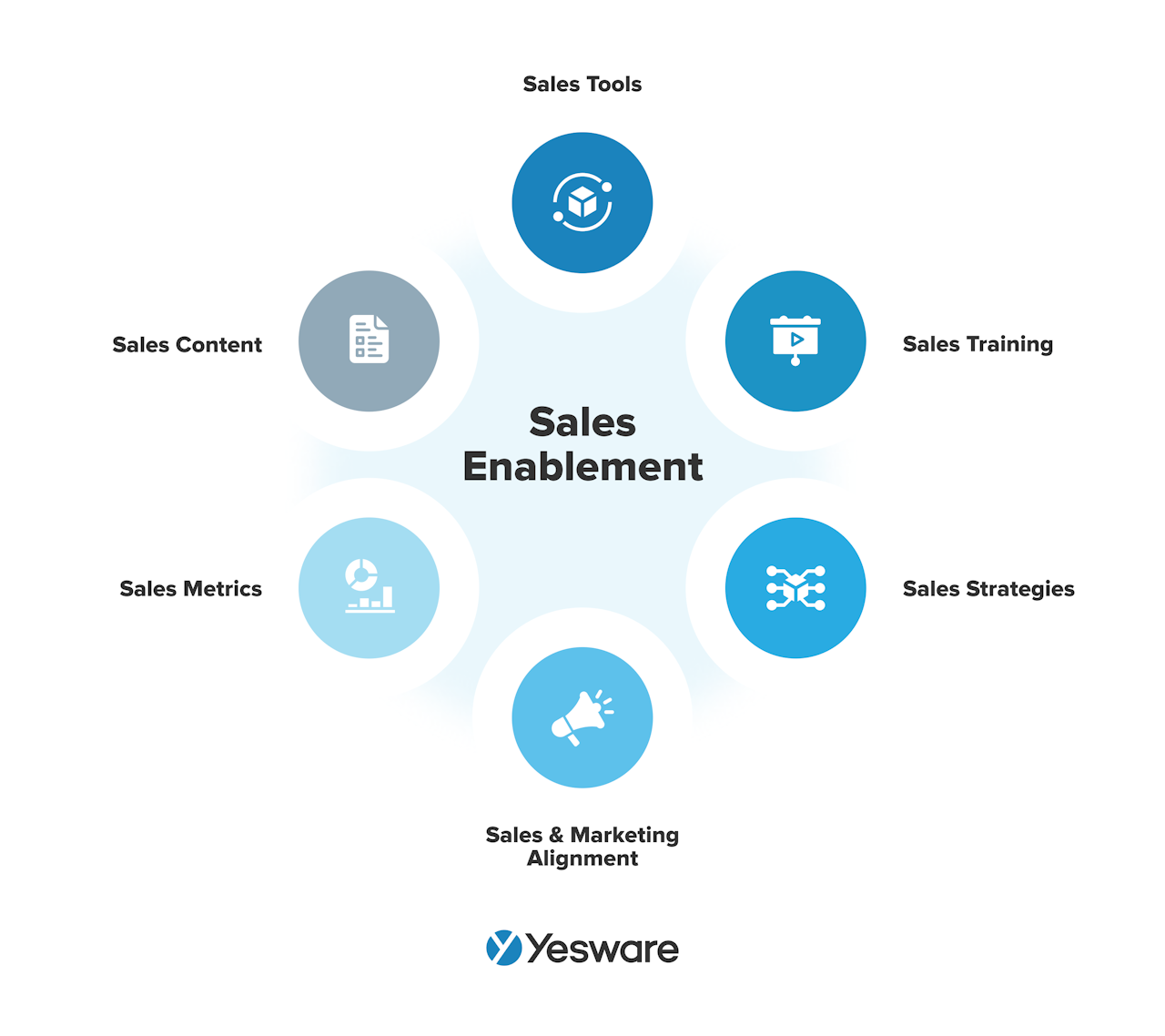 Both sales enablement teams and software platforms help manage customer contact and keep relevant and valuable content at the ready to engage with the right buyers at the right time.
Both sales enablement teams and software platforms help manage customer contact and keep relevant and valuable content at the ready to engage with the right buyers at the right time.
Many teams claim to have invested in and implemented a sales enablement process, but do not reap the full benefits of the practice because they haven’t developed it enough.
This SE model breaks down the stages by maturity levels:
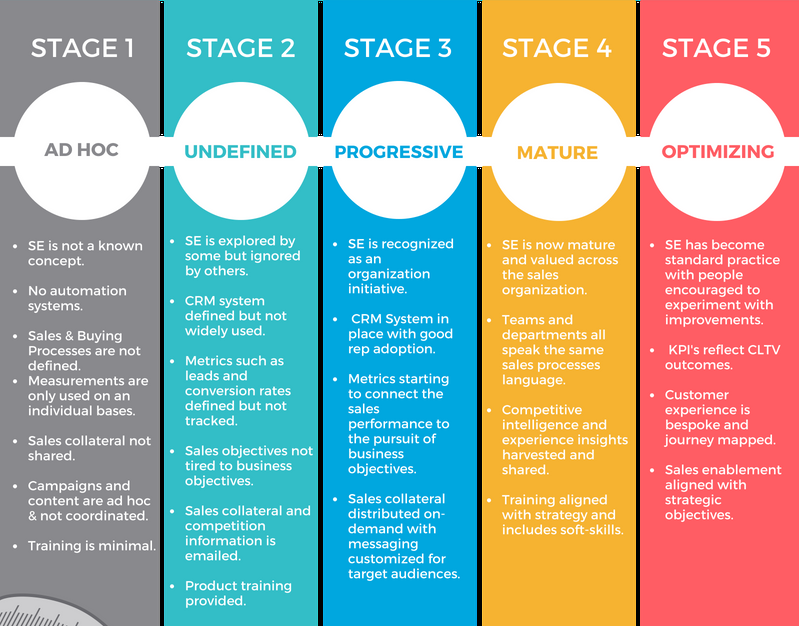
Most organizations get stuck somewhere between the first three stages. For sales enablement to be effective, and contribute to sales excellence, teams should strive to reach the optimization stage.
Sales Training
As is the case in any domain or field, sales excellence is born out of practice and proper training.
Consistent and continuous sales training and sales coaching are both imperative for any team that wants to achieve excellence. 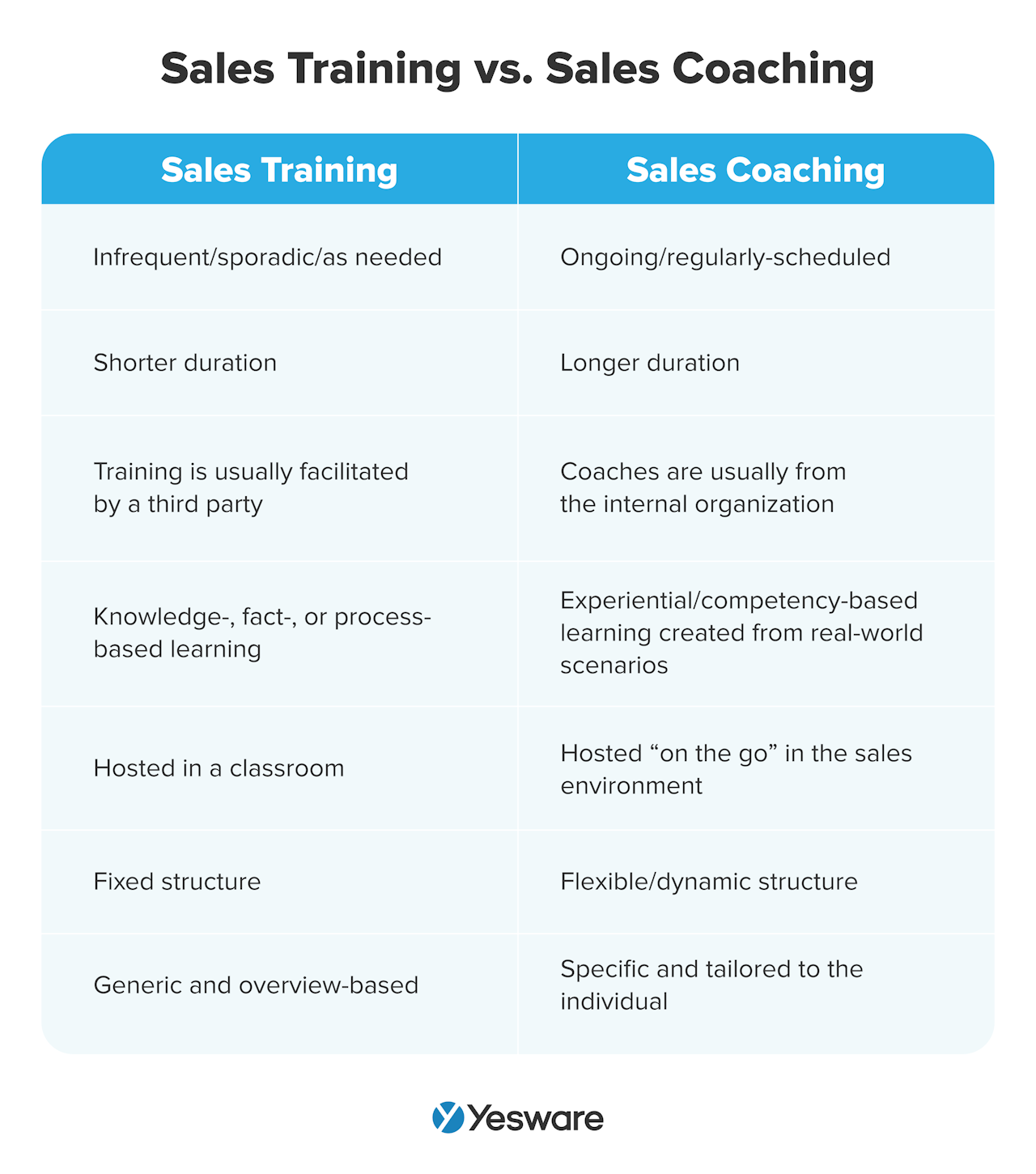 Proponents of sales coaching will insist that coaching is far more important than training, but don’t ignore either practice.
Proponents of sales coaching will insist that coaching is far more important than training, but don’t ignore either practice.
New hires, for example, should receive thorough training on how to use your team’s CRM system. Implementation of the training should be addressed in coaching sessions.
There is a time and a place for both.
Sales Culture
In addition to these more tangible factors, sales excellence is also dictated by your team’s culture. Sales managers should strive for an environment where all sales reps are supported, encouraged, and rewarded for excellent performance and improvement.
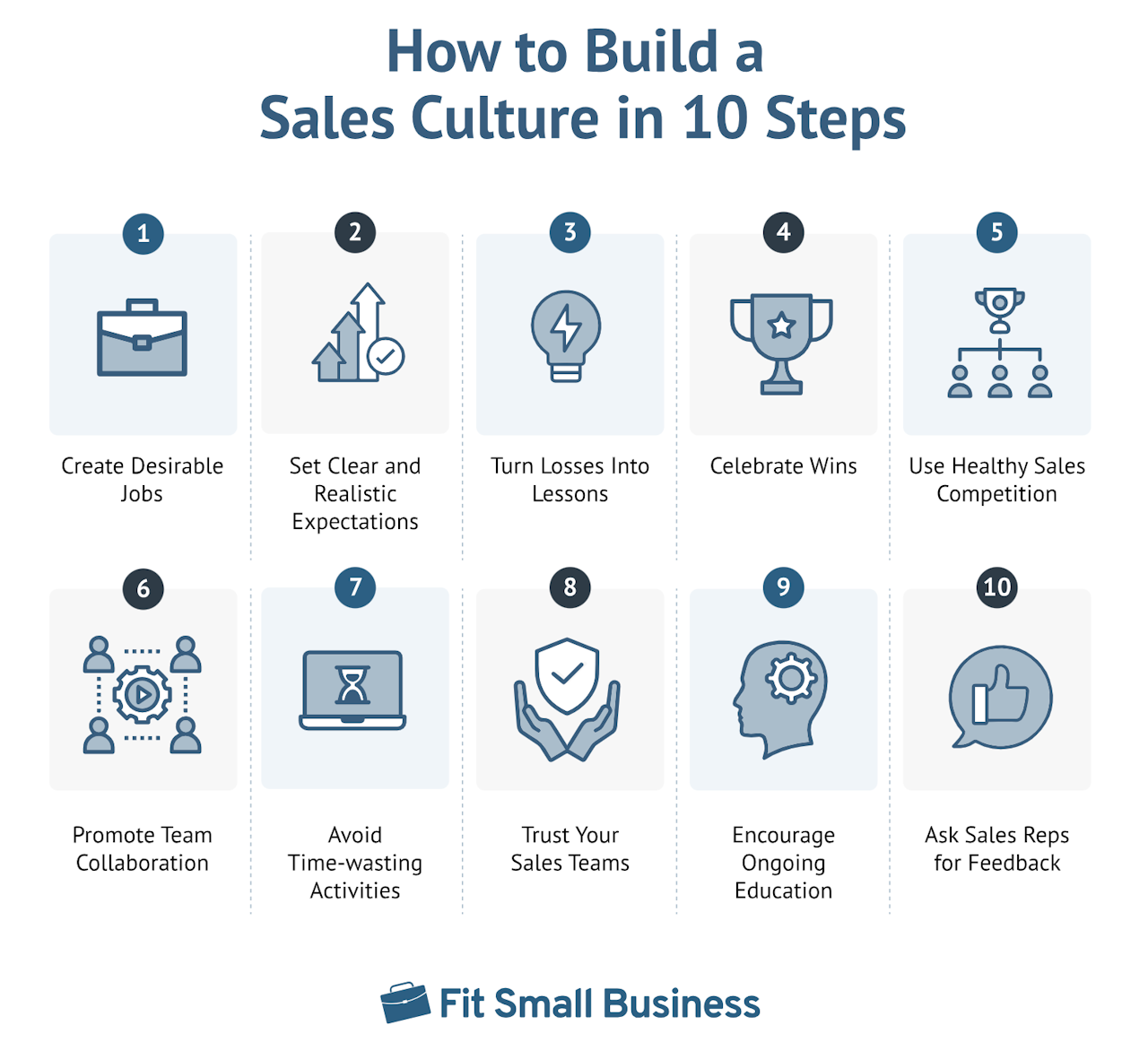
The goal is to create a culture that attracts hard-working, easily coachable sales reps who are willing to be loyal to an organization that helps them meet goals.
How to Measure Sales Excellence
Measuring sales excellence is important for any team who wants to improve their performance.
For sales teams that regularly meet their goals, paying attention to sales excellence can help them determine new and aggressive ways to grow their business.
For teams that are struggling to meet benchmarks, sales excellence metrics can help them identify the problem areas of the sales funnel.
Sales excellence can be determined by measuring metrics in the following categories: sales performance, sales productivity, and sales proficiency.
Sales Performance
There are various sales metrics that contribute to overall sales performance, such as:
- Total revenue
- Year-over-year growth
- Percentage of sales reps attaining 100% quota
- Customer acquisition cost (CAC)
- Customer lifetime value (LTV)
- Content engagement
These tangible measurements give a robust big-picture look at how effective the sales team — or each individual sales rep — currently performs.
Sales Productivity
Sales metrics that contribute to overall sales productivity include:
- Percentage of high quality leads followed up with
- Time spent creating content
- Average number of sales tools used daily
- Percentage of marketing collateral used by sales
- Percentage of time spent on selling activities
- Communication analytics
Today’s sales rep only spends about ⅓ of their time on selling activities; the rest is allocated to administrative and non-revenue-generating tasks.
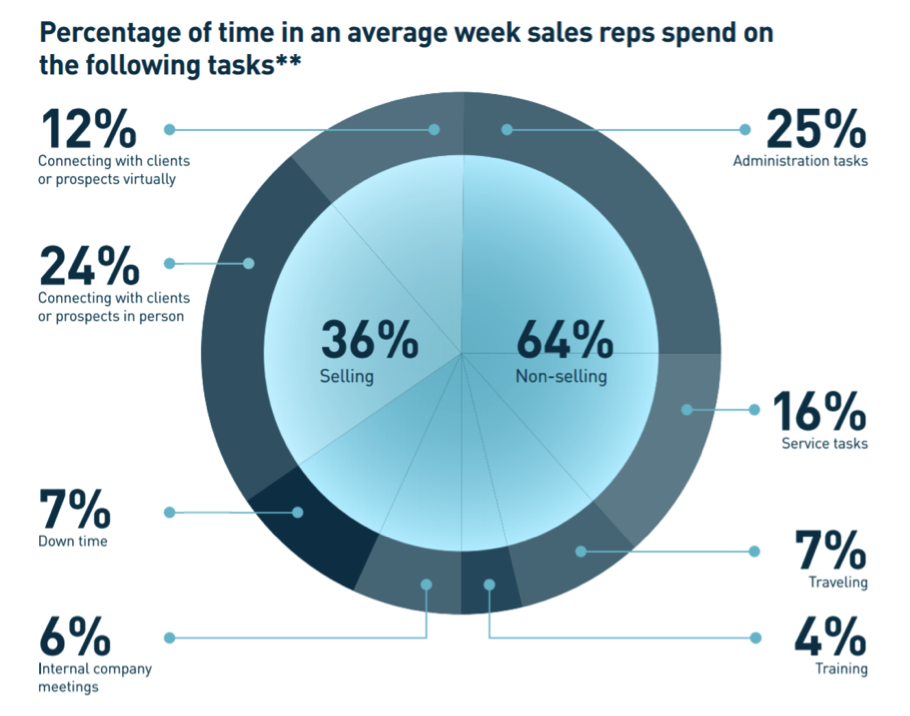
Sales productivity metrics will help salespeople determine how and where they can make their time more efficient.
Sales Proficiency
Similar to sales productivity, sales proficiency is a cross-section of sales performance and productivity. It measures how long it takes each rep to perform key sales milestones.
Sales proficiency metrics include:
- Time to ramp — how quickly sales reps develop the skills and knowledge they need in order to be successful
- Time to productivity
- Time to quota attainment
- Time spent in sales onboarding sessions
- Time to first deal
These metrics are most often applied to new sales hires, but they can offer valuable insight into any sales rep’s performance.
Sales Best Practices To Follow
Sales excellence is achieved when individual sales reps commit to making small, targeted, and consistent efforts to improve their performance.
Here are a few sales best practices that help move the needle toward excellence for individual reps and the team as a whole.
Align Sales and Marketing
First and foremost, it’s important that sales and marketing work together on strategy and execution.
Marketing initiatives and the sales process should be designed in a way that closely links with the buyer’s journey. 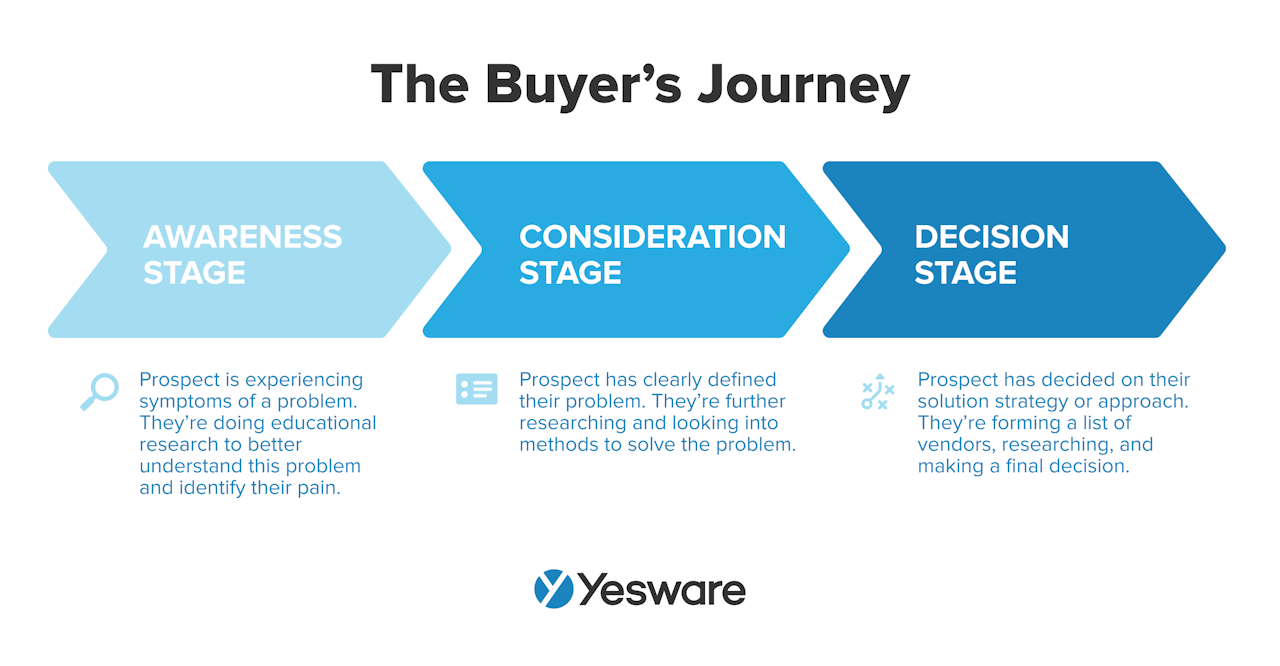 These two teams need to have a common and well-understood standard for how they define the different stages and actions within the sales funnel.
These two teams need to have a common and well-understood standard for how they define the different stages and actions within the sales funnel.
Build a Good Sales Culture
Have you ever heard the concept that you are the average of the five people you spend the most time with?
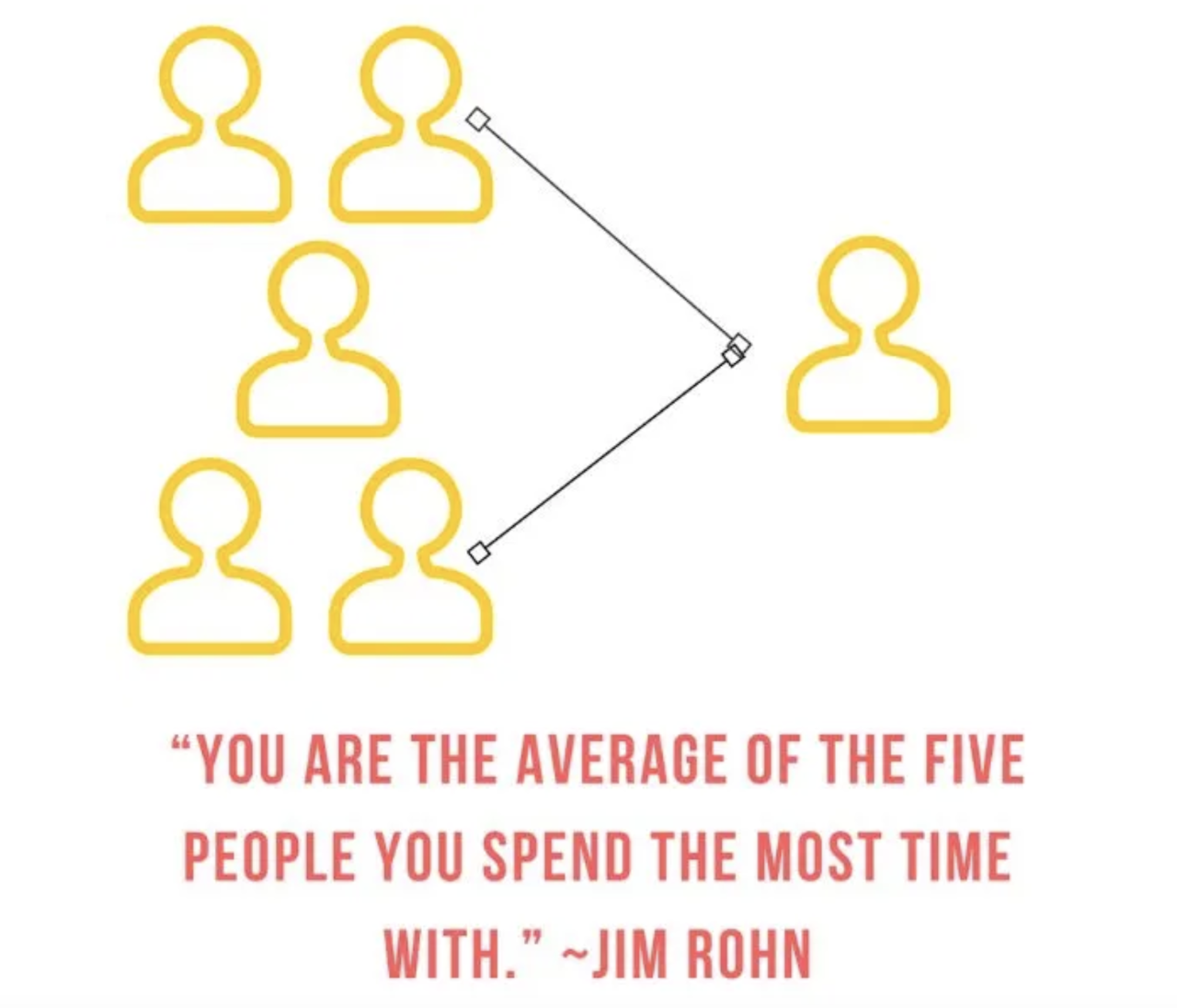
The general idea here is that if you surround yourself with high-performing peers, you will automatically “level up” just by being in their company.
Sales culture tends to work similarly.
The stronger and more supportive your sales culture is, the higher performing the entire team will ultimately become.
Though it might seem counterintuitive, sales managers who want to achieve sales excellence should focus on creating a supportive environment where mistakes are welcomed and even encouraged.
(If you/your team aren’t collectively familiar with the concept of a growth mindset, it might be worth the time to invest in some training around how to foster this belief system within your organization.) 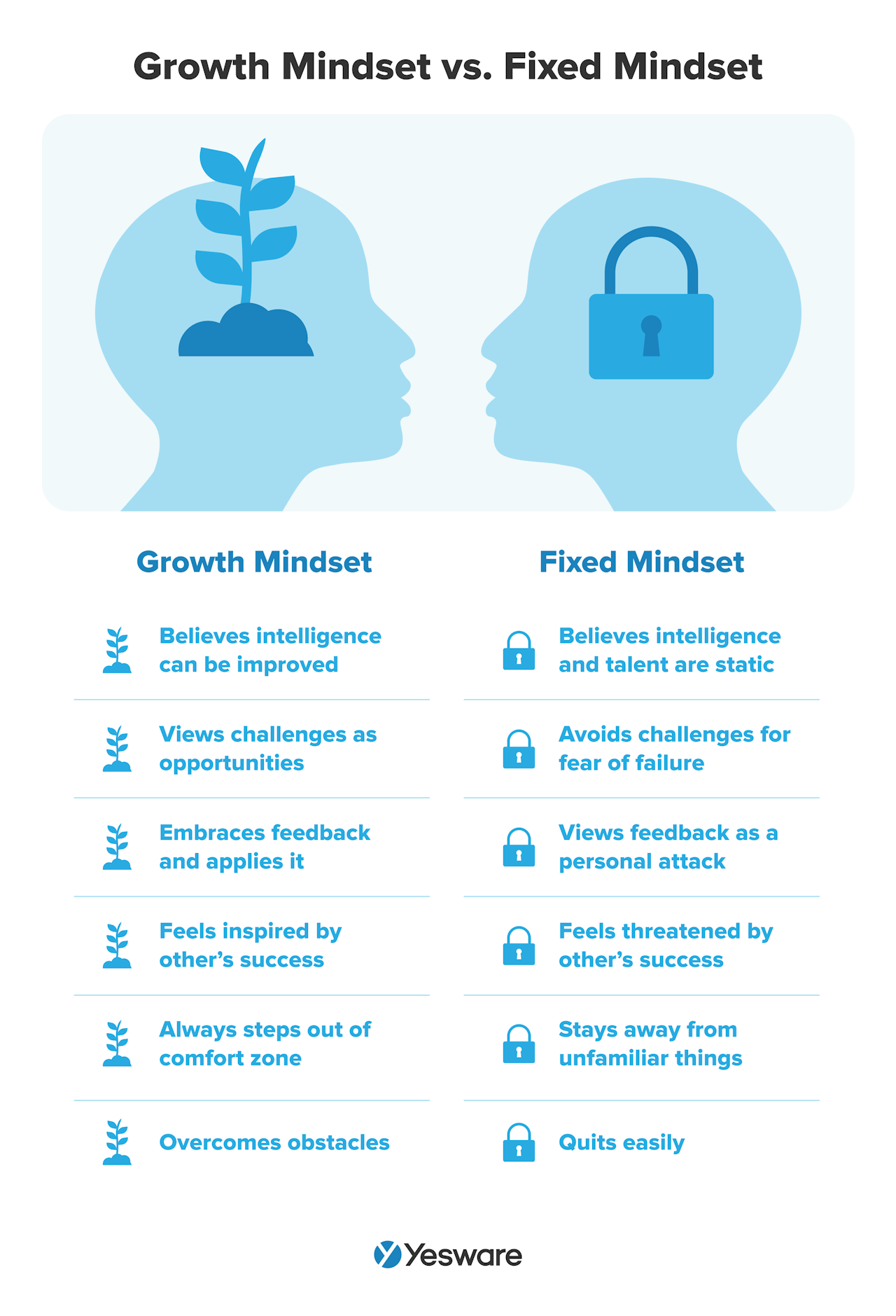 In a similar vein, encouraging creativity and “off the beaten path” thinking can be just as productive as welcoming mistakes.
In a similar vein, encouraging creativity and “off the beaten path” thinking can be just as productive as welcoming mistakes.
That’s not to say that processes and frameworks aren’t important — in fact, most high-performing sales teams rely on formalized sales structures to maintain their success.
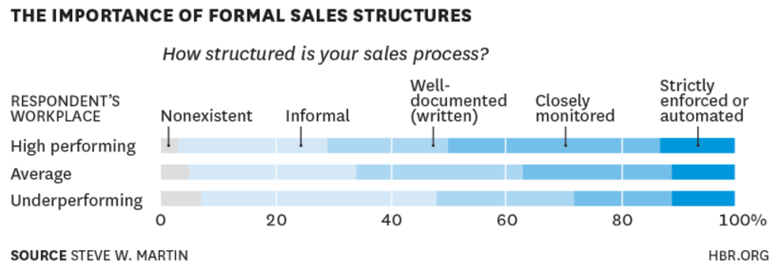
But sometimes, great sales culture requires managers to be flexible and allow reps to abandon “the process” every once in a while for the sake of exciting initiation or innovative thinking.
Productive and positive sales culture also requires that sales managers ensure that the team’s sales compensation plan is fair, ethical, transparent, and motivating.
This is one area where sales managers can set themselves a notch above when it comes to sales culture. Those who take the time to find out what actually incentivizes the employees on their sales team — rather than rely on generic compensation templates and tired incentive ideas — will reap the rewards in outstanding sales team culture.
Go Digital and Don’t Look Back
Today’s sales world is digital-forward, and sales teams who aren’t working to keep up will almost certainly be left in the dust.
Your tech stack — specifically, how effectively your team has adopted the platforms available to them — is the foundation of success for a sales team seeking excellence.
Spend time with your team maturing and optimizing your data collection and analysis processes. Use the insights you gather in this process to find opportunities for automation.
Master the Follow-up
Following up with prospects makes an incredible difference. Follow-up emails turn an unanswered email into a productive conversation that leads to a close.
Surprisingly, even experienced sales professionals don’t follow up nearly enough.
The numbers paint a bleak picture: 80% of sales deals take five or more follow-ups to close, yet 44% of reps stop after the first attempt.
That means just 8% of sales reps are consistently following up with prospects. And if you’re among them, you’re putting yourself at an enormous competitive advantage. 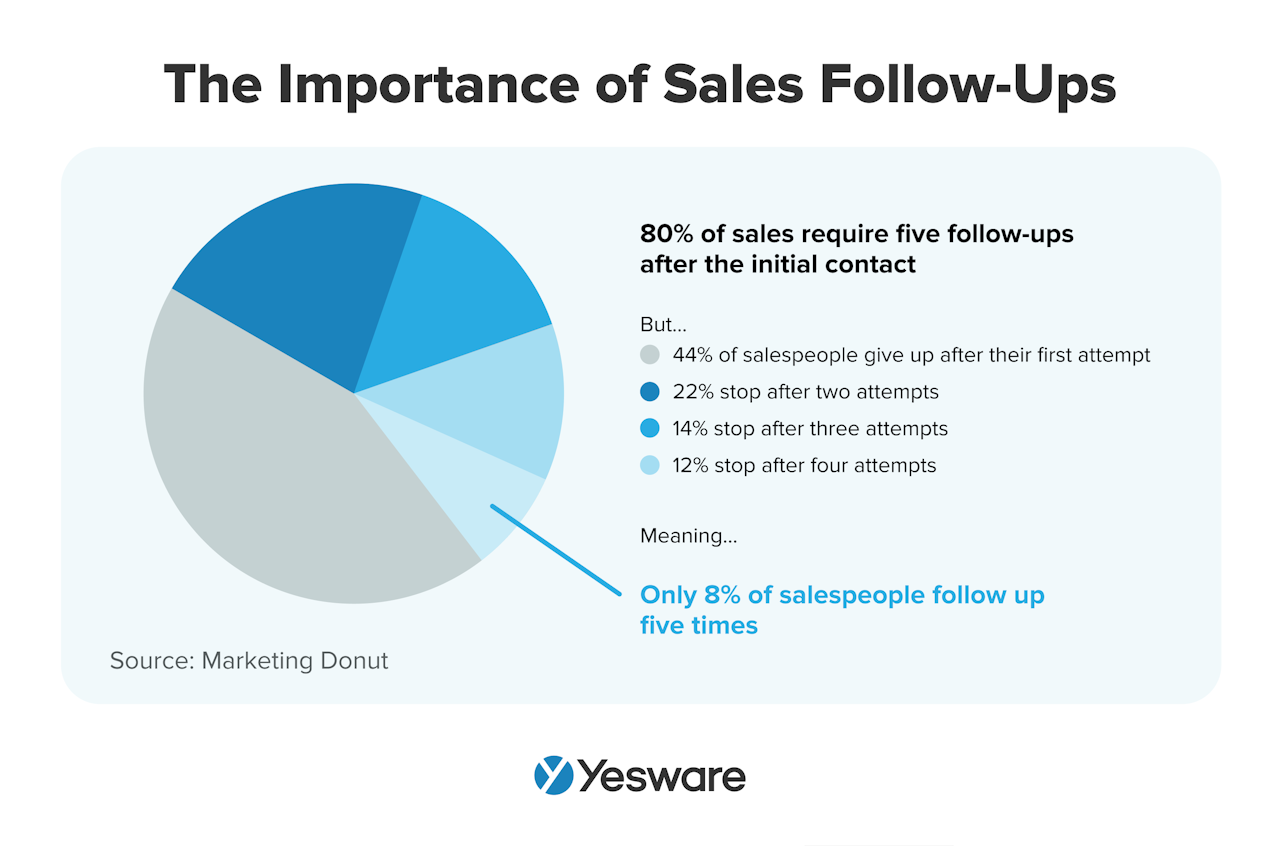 The reality is that people are busy. It’s totally normal to not hear back from prospects in your initial outreach attempts.
The reality is that people are busy. It’s totally normal to not hear back from prospects in your initial outreach attempts.
A strong follow-up strategy shows the prospect you’re committed and allows you to re-position your offering with each message.
All in all, following up is necessary to position yourself among the top-performing sales reps landing most of the deals.
Tip: Automate your follow-ups with Yesware’s Campaigns feature so you never let a follow-up slip through the cracks. (Try for free here!)
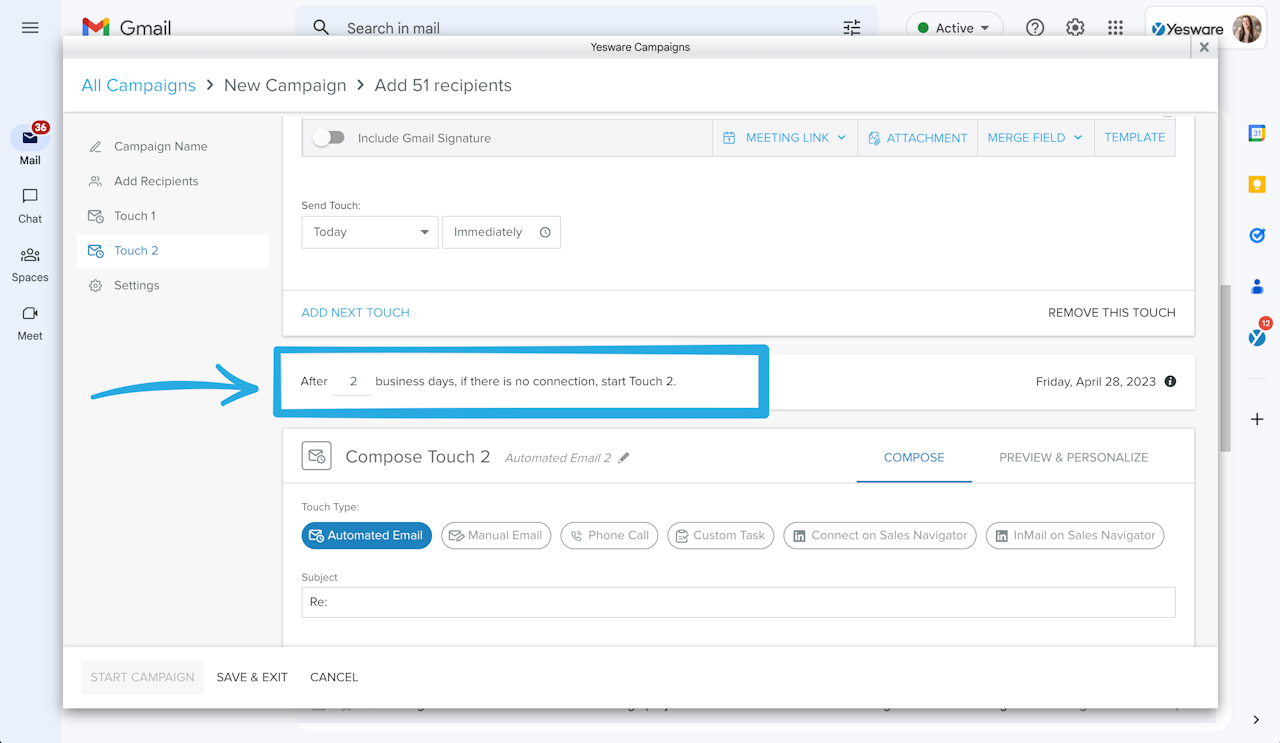
Invest in Sales Enablement
A sales enablement platform, along with a CRM, is the most important tech tool in your stack for achieving sales excellence.
Sales enablement platforms enable all customer-facing teams to add value to each and every prospect conversation. The insights provided by these platforms can help teams identify which content and interactions resonate most with your target buyer.
Focus On Building Relationships and Trust
Today’s buyer expects a personalized buying experience. They reject pushy sales attempts and gravitate toward salespeople who act in the role of trusted advisors.
While many metrics play a role in achieving sales excellence, most outstanding sales reps will tell you that the biggest contributing factor to their and their team’s success is their ability to create trusting, authentic relationships with prospects.
Sales and marketing should work together to create detailed and targeted ideal customer profiles (ICP) and buyer personas.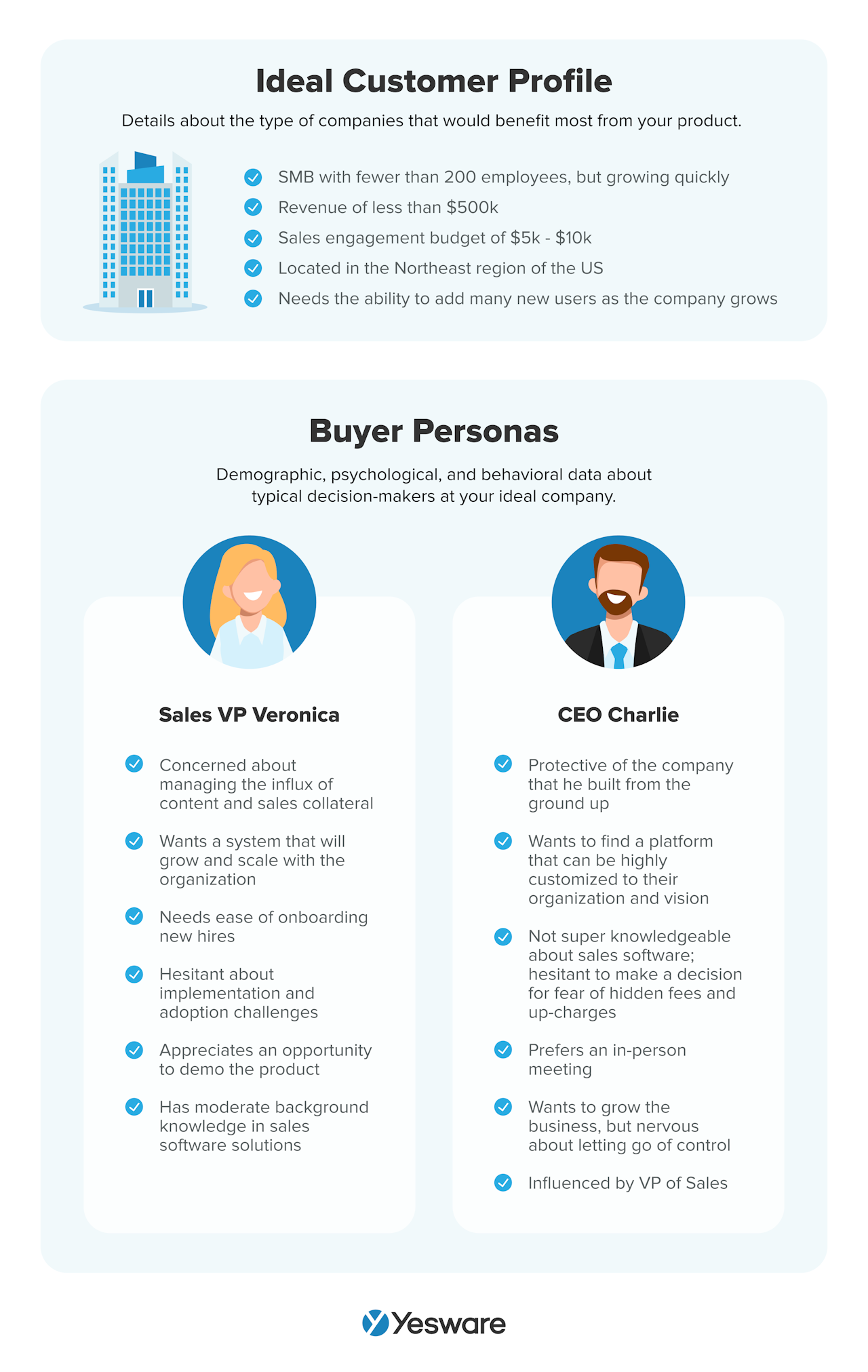 These profiles will help salespeople personalize their outreach and deliver the right content to the right prospect at the right time.
These profiles will help salespeople personalize their outreach and deliver the right content to the right prospect at the right time.
Incentivise Sales Excellence
Sustainable sales excellence is hard to achieve without appropriate incentivization.
It can be hard to balance the instinct to reward impressive performance with the need to be mindful of the company’s resources — especially when more of your team starts consistently performing at an elite level.
But commission caps and income ceilings are, across the board, wildly unpopular, and will inevitably squash your team’s success at one point or another.
Most sales managers find success with offering unlimited commission and/or overachievement commission to recognize and reward outstanding performance.
But for sales teams who are still ramping up, and may or may not yet consistently have the financial resources to allocate for unlimited commission, there are other creative ways to successfully incentivize your team for success.
Here are 20 sales incentive ideas:
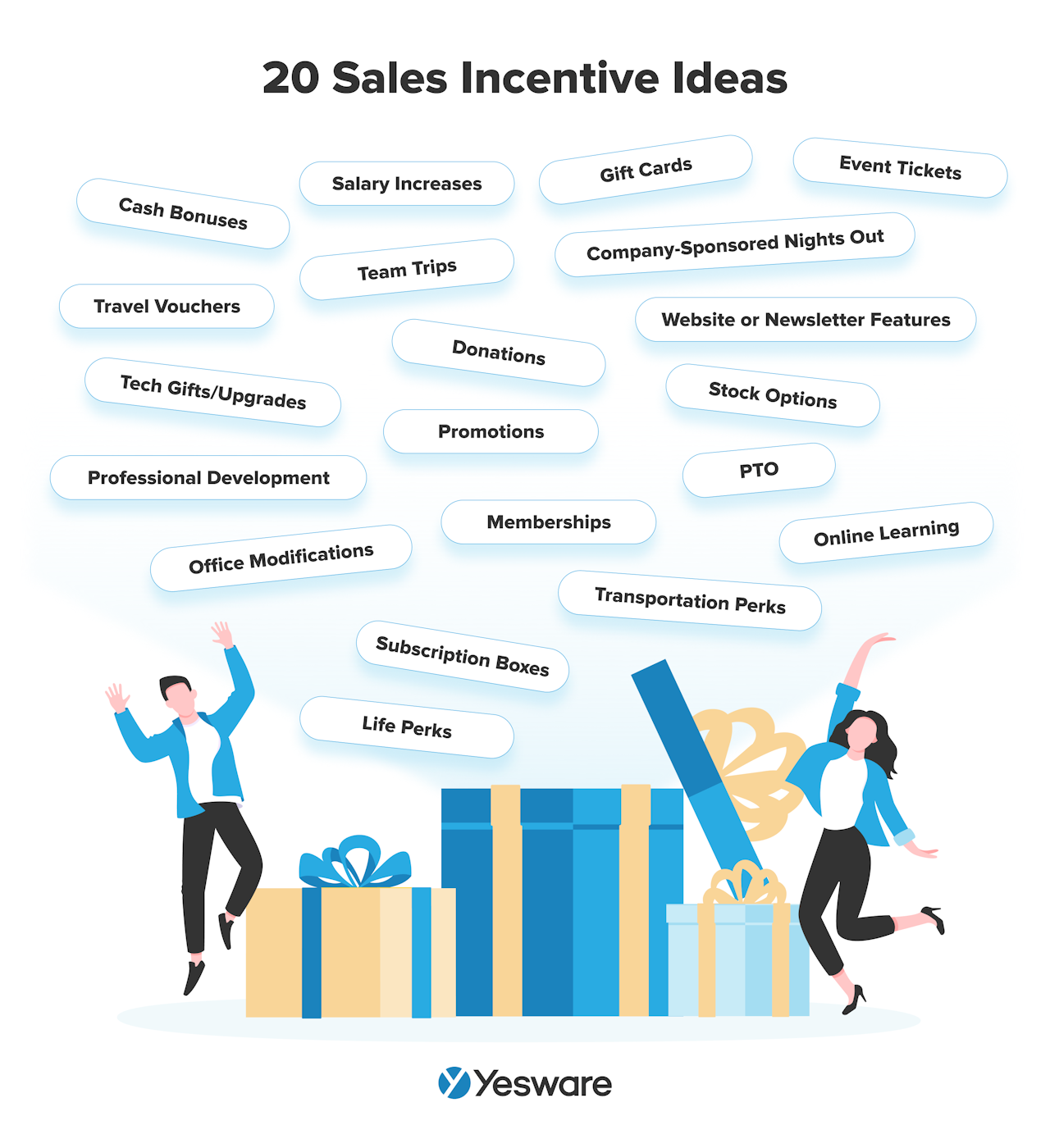
Short-term, competitive, incentive-based initiatives like spiffs can keep progress moving forward and performance rewarded.
Verbal recognition, leaderboards, one-time financial incentives, vacations, and other non-cash rewards can also be highly motivating.
Remember: sales excellence is a unique category, and incentives for this level of performance should be reserved accordingly. While it’s important to recognize each member of your team, rewards and incentives for excellence should be similarly exceptional and lucrative.
Be Open to Change
No one is born excellent — excellence is achieved through work, dedication, and a willingness to try new things in order to improve.
Sales managers should take care to foster a culture of curiosity and willingness to change. A 1% improvement across all metrics and all salespeople is all it takes to make the first step toward sales excellence.
This guide was updated on January 31, 2024.
Get sales tips and strategies delivered straight to your inbox.
Yesware will help you generate more sales right from your inbox. Try our Outlook add-on or Gmail Chrome extension for free, forever!
Related Articles
Casey O'Connor
Casey O'Connor
Casey O'Connor
Sales, deal management, and communication tips for your inbox

